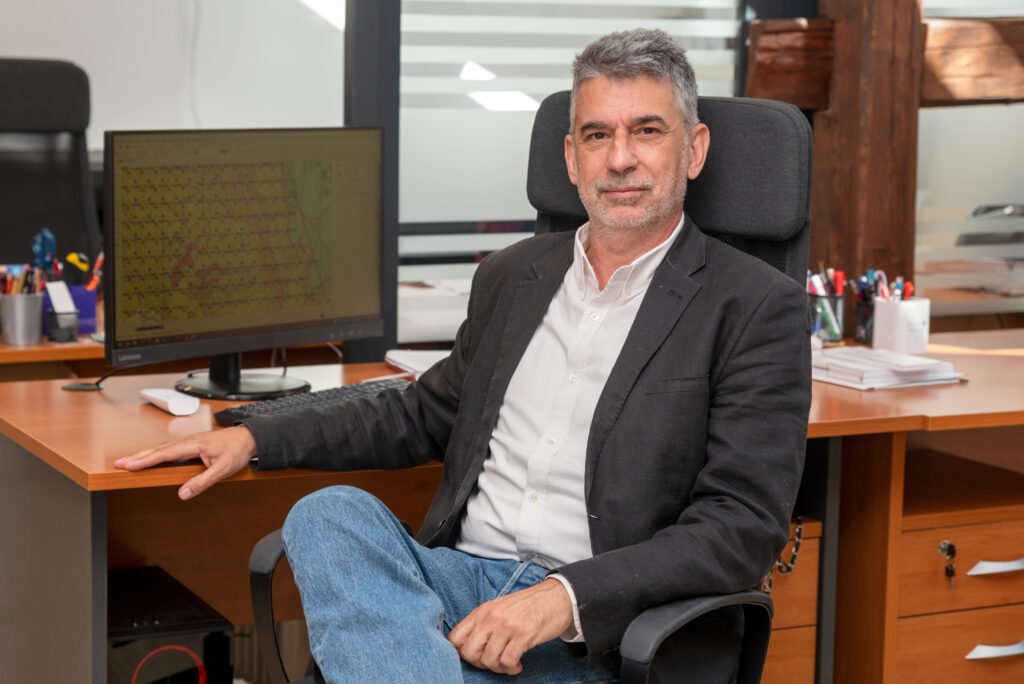I think a lot of work is needed to popularize geology
We spoke with Dušan Simić, Founder and CEO of the Jantar Group, about the challenges that the company has been facing, the current situation in geology in Serbia and the future of geological exploration.

You have been at the helm of a leading private company in Serbia and the region in the segment of geology for 22 years. What challenges does the company face today?
The Jantar Group has been engaged in geological exploration since 2000, and our very beginning was very difficult due to the prevailing belief that private companies should not be engaged in geological operations. The first challenge was to convince investors that a private company can do business and provide the same if not better conditions than state-owned companies. The situation changed significantly with the arrival of the first foreign investors because they had extensive experience in working with private companies worldwide. Another big challenge is a recent one because geology as a discipline is anathematized by individuals and political groups. This creates big problems in the field and creates a bad image of our society. The biggest challenge is new mineral deposits which is a dream of every geologist engaged in this line of work.
Considering the war in Eastern Europe and the energy crisis, what do you think about the current situation in Serbia in terms of exploration and sustainable use of geological resources?
There is great interest from domestic and foreign exploration and mining companies, especially in metallic minerals. The current political and military situation has certainly contributed to the higher demand and, rising metal prices on global stock exchanges but has also instilled fear in investors. Some companies (especially smaller ones) are intimidated by the possible escalation of the conflict and the problems that would cause. It is important that large investors still show undiminished interest in investing in exploration.
Sustainable use of mineral resources is a very broad topic, but I would like to underline that our laws, especially those regulating environmental protection, are very strict and harmonized with the EU’s. Every exploration and exploitation of mineral resources must be strictly controlled at all stages (from exploration approvals and geological exploration to environmental impact studies and exploitation approvals, as well as exploitation itself). Inspection services need to do better, though.
The Jantar Group is a member of the Canadian-Serbian Business Association (CANSEE). What can Serbia learn from Canada, when it comes to geology?
The CANSEE has contributed a lot to improving the geology and mining segment in Serbia with its networking. Serbia can learn a lot from Canada, especially about the state’s support for the mining industry. Serbian companies and geologists have learned greatly from their Canadian peers, about how the work is organised and the cooperation with local governments and people in the field. We should also mention environmental protection, where Serbian companies have made great progress by implementing the same standards as Canadian companies, following the laws of the Republic of Serbia which are harmonized with those in the EU.
In the year 2000 and in cooperation with the Faculty of Mining and Geology, you held a round table discussion on the topic “Geology – What to do next?”. How would you reply to that question today?
This issue is very interesting, especially in the context of the current situation when, on the one hand, there is strong interest in geological exploration, especially metal, which has become more expensive lately, and on the other, there is great resistance from certain environmental organizations and interest groups.
What to do next? Mining, as an economic branch, is the basis of every development. Everything we use in everyday life is a product of mining or is obtained with the help of a product of mining (tools). To be able to talk about mining at all, we must first do geological exploration to, find out what kind of mineral wealth we have. This is the basis for any further mining activities because mining can only exist where there is ore to mine.
“Without geology and mining, there is no civilization as we know it”
Much work is needed to popularize geology. Geological exploration is not a nightmare but our need. Maybe geology should be taught as a school subject again (it was abolished in the 1950s). The Faculty of Mining and Geology and numerous associations (the Serbian Geological Society, CANSEE, chambers, SITS, etc.) must have a much larger and more active role in bringing geology and mining closer to people who are not in this profession. One must especially react to various types of misinformation (malicious or caused by ignorance), which are increasingly disseminated today.
So, I think a social consensus on geological exploration and mining is needed, with the involvement of all stakeholders – the state, investors, construction companies engaged in geological exploration and mining, institutions (faculties, departments), laboratories, local governments, various civil associations, environmental organizations (NGO sector) and interested individuals. It may not be a bad idea to organize a cluster to address these issues.
We need to achieve a balance struck between mining and environmental protection, because without geology and mining, there is no civilization as we know it.